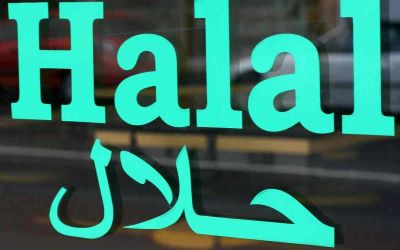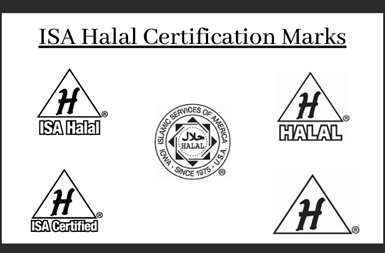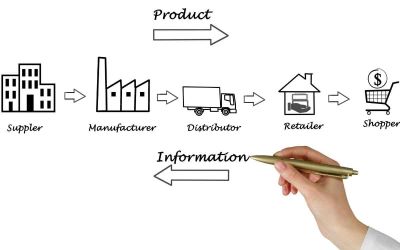
How Halal Certification Benefits Businesses and Consumers
Muslims and Halal Consumers follow a set of dietary guidelines called Halal. Halal is an Arabic word meaning "permissible." It is often used for food and drink, but it can also apply to other areas of life, such as cosmetics, pharmaceuticals, tourism, modest fashion, and banking.
Halal food is prepared according to Islamic law and free from any ingredients or processes that are not permissible. This includes alcohol, pork products, and birds with talons, and any animal by-products that have not been slaughtered in a specific way. One way to ensure Halal compliance for your food business is through obtaining a Halal certification. This involves getting your products and processes verified and approved by a recognized Halal certification body.
But what is Halal certification, when did it start, and why do businesses need it? What value will it provide to Halal consumers?

What is Halal Certification?
Halal certification is the process of verifying that a Halal business and its products or services comply with Islamic law. The competent Islamic authority or Halal body usually issues the certification after reviewing products, ingredients, and raw material sourcing. They audit its processes, production premises, packaging and labeling to be sure everything is up to standard. Halal is not just about food anymore. The Halal domain has been growing rapidly and is worth an estimated $2.3 trillion globally, predicted to reach US$4.96 trillion by 2030.
Lately, there has been an elevated demand for Halal-certified products and services from the Muslim community - spanning everything from food to drugs, tourism, pharmaceuticals, cosmetics and fashion. Mainly, this upward trend is because consumers are becoming more aware of their rights and responsibilities and conscious about their food.
Halal certification is also a mark of quality and safety, demonstrating that the product or service has been produced under strict Islamic standards. As a result, many businesses seek Halal certification to tap into this lucrative market. While the demand for Halal-certified foods is most prevalent in Muslim-majority countries, it is a global phenomenon that is here to stay.

How Did the Practice of Halal Certification Start?
Halal certification has existed for decades, where Muslim food and technical experts created a system to ensure Muslims could purchase products that met their religious requirements.
Halal certification didn't necessarily start in Muslim countries. Muslims living in non-Islamic societies, such as the United States, Europe and some parts of Asia, needed a way to ensure that the products they were buying were Halal. This practical safety measure became a useful tool to guarantee that the products produced in non-Muslim countries were acceptable to the Muslim world.
With globalization came the removal of barriers between countries, and it was soon realized that no safety measure could prevent the importing country from accepting products from the other.
At this time, the Jews were imposing their religious criteria for products to be acceptable to them through certification and accreditation known as "Kosher." Thus, Muslims in the United States started to follow the precedent established by Jews in America and created their own Halal certification logo.
The Benefits of Halal Certification – for Businesses

Increased access to Muslim and Halal consumers
The Muslim population is anticipated to reach 2.2 billion by 2030, making up 26.4% of the world's population. In 2016, Muslim consumers spent US$1.2 trillion on food and beverage alone. By 2022, this figure is projected to reach US$1.9 trillion. For businesses, it means that there is a large and growing market for Halal-certified products. Halal certification is, therefore, a way of tapping into this lucrative market.
Increased credibility and transparency
The Halal certification process is very stringent, and businesses must meet several criteria to be certified. Halal businesses that have gone through this rigorous process send a strong message to consumers that it is a credible and trustworthy source of Halal products. Consumers who see Halal logos on products are likelier to trust and buy from the brand. This increased transparency is good for businesses, as it builds consumer confidence and trust.
Improved brand image and reputation
In today's increasingly competitive marketplace, businesses must differentiate themselves from their competitors. One way to do this is to get Halal certified, which can help businesses build a positive brand image and reputation among Muslim consumers. A business seen as being Muslim-friendly is more likely to win Halal consumers' trust and loyalty, which, in turn, can lead to more sales and ROI. Halal certification can therefore be seen as a valuable marketing tool that can help businesses to stand out from the crowd.
Enhanced product safety and quality
Halal certification requires businesses to adhere to strict guidelines and standards. This can help to improve the safety and quality of products and services, thus, reducing the risks of recalls and other reputation-damaging incidents.
Improved supply chain management
Halal certification can help businesses streamline their supply chains and reduce the risk of cross-contamination with non-Halal products, leading to cost savings and improved efficiency.
The Benefits of Halal Certification for Consumers

Improved food safety
Food safety is a worldwide concern. In the Muslim world, Halal certification provides consumers with an additional protection layer. With it, Muslim consumers can ensure that the food they purchase is safe and free from contaminants.
Enhanced product quality
Halal certification bodies have strict requirements for food production, handling and labeling. Additionally, Halal-certified products are often subject to regular audits and inspections. Halal-certified products are thus of a higher quality. As a result, consumers' trust in Halal-certified products is enhanced.
Greater choice of products
Halal certification provides consumers with greater product choice. It also helps to support the growth of a Halal industry that can cater to the needs of more consumers. Halal-certified products are available in many industries, including food, cosmetics, pharmaceuticals, etc.
Greater peace of mind
Halal certification provides Halal consumers with greater peace of mind whereby Halal-certified products align with their religious beliefs and are safe for consumption.

What is a Halal logo?
The Halal logo is a symbol and marketing tool to indicate that a product or service has been certified as compliant with Islamic law. Every Halal logo is unique and visibly tied back to its actual Halal certification body. Halal logos can be found on various products, including food and pharmaceuticals. It is also increasingly seen in non-food products like cosmetics, clothing and electronics.
How to Get Halal certified?
First, determine whether your products and services comply with Islamic law. Then find an authentic Halal certification body in your country to apply for certification.
If you are based in a Muslim-majority country, there are several government-run Halal certification bodies that you can apply to. You can choose from many private Halal certification bodies in other countries, such as the USA.
ISA Halal is the oldest and most reputable private Halal certification body that provides Halal certification to businesses in the USA, Canada, Mexico, and some overseas countries.

At ISA Halal, we pride ourselves on making the Halal certification process easy for businesses. We offer valuable support and a wide range of services to help businesses enter the Halal market, such as Halal certification, Halal-specific training and additional value-added services.
Once you have selected a Halal certification body, you need to submit an application form, execute an agreement and provide supporting documentation to commence the process. The certification body will assess your application and audit related products and services.
Final certification is reached once the process is documented, approved and completed successfully. Afterwards, display your Halal logo on your products, website and marketing materials.

Summary
The increased demand for Halal-certified products presents an opportunity for businesses to capitalize on this growing market. Halal certification is a valuable asset for businesses looking to enter the Halal market. It provides numerous benefits, such as improved food safety, increased transparency and enhanced brand image and product quality.
If you're a business that wants to capitalize on this growing market and get Halal certified, ISA Halal is here to help.
Islamic Services of America (ISA) has been a leading USA-based Halal certification and auditing organization serving companies, the community, and the Halal industry for over 45 years. We help ease the whole process and offer valuable support and a wide range of services to help businesses enter, develop and grow in the Halal market.
To learn more about the Halal certification process, contact us at isa@isahalal.com or visit our website.